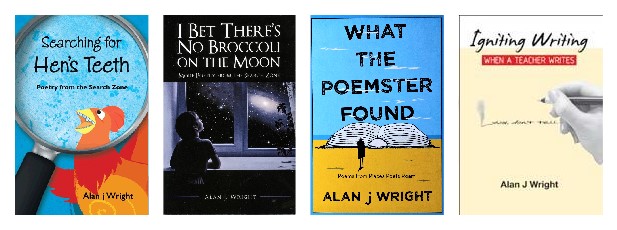What do you do when you want to remember something?
Do you say it to yourself again and again until you learn it?
That’s using repetition.
Repetition in poetry may include a word, a phrase, a line, or even a stanza the poet wants to use more than once for particular effect. We hear it, We see it. We begin to feel its presence.
When using repetition the poet must make sure that what is repeated is important to the poem, otherwise it can feel or sound overdone.
In the poem, Bully For Me, I consciously repeated the words, 'But ours left' in each stanza hoping to create a sense of relief in the mind of the reader.
Bully For Me
 We had a bully at our school
We had a bully at our schoolI think every school has one
-But ours left
Now, I can ride to school
Relaxed
We had a bully at our school
-But ours left
And now playtime is fun again
We had a bully at our school
-But ours left
I wonder if that person is happy?
Like me and my friends
Are now
If we want young poets to use repetition effectively we need to ensure we plan for it in our teaching of poetry.
Some Things to Consider:
- Collect and share poems that include word play such as onomatopoeia and alliteration. Discuss how these literary techniques enhance the reader's connection to and enjoyment of the poem.
- Alliteration enhances memorization. The young poet will be more likely to recall the words.
- Have students investigate poetry books in order to find their own examples of alliteration and repetitive refrains. Encourage them to begin creating their own and start to use them in poems of their own. Collect examples of interesting word play in their own notebooks for later reference.
- Create anchor charts for onomatopoeia, alliteration, words and phrases. keep these lists visible and refer to them regularly as examples that may further inform their poetry writing.
- Develop catchy words into phrases and sentences, and consider how these special words grab our attention. the questions for the poet is, how could they be used in a poem?
- Often these catchy words are floating in the playground. help students to think about everyday language. Encourage them to listen closely and collect these special words. Words that possess rhythm
I recently compiled a list of some poetic phrases I found in a book I pulled from the shelf and shared them with students. I wanted them to be aware of how such gems are lying hidden on the page, waiting to be discovered by an alert reader. I adopted the guise of a text detective and went searching for phrases that could be used as repeating refrains. I can see the potential in the assembled words for use in a poem. Building a poem around a refrain becomes easier when we have identified a few catchy words.
Here is some of my treasure...
Now, that’s unusual
In the night
I have a dream
In the sky
When I was little
Oops!
In my hands
This is the shape of anger
Tucked in tight
Last time
In the ocean
That was a mistake
Let me repeat, -repetition is fun when it's not overdone.


Comments
Post a Comment